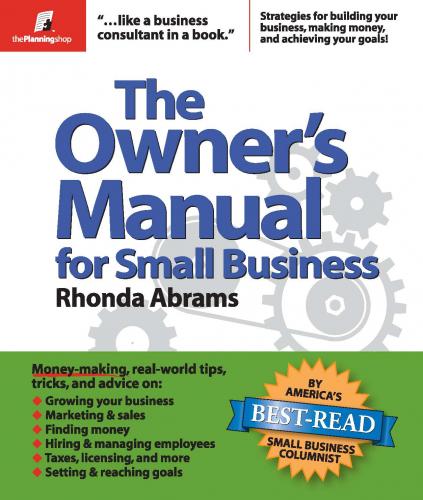Developing Your Strategic Position
During my first few years as a management consultant, I helped business owners learn to improve their operations and marketing. I helped entrepreneurs learn how to increase their profit margins and design more effective brochures. In other words, I helped them with the nuts and bolts of running a company. Over time, I realized that nuts and bolts aren’t enough.
In today’s increasingly competitive and constantly changing business environment, it’s not enough to know how to run a business. You have to have a clear understanding of what business you’re really running. You need to find a way to meaningfully differentiate yourself from the competition and create a bond between you and your customers. What you need is a clearly defined strategic position.
Today, defining a strategic position is as important for the proverbial “mom and pop” small business as it is for a high technology company. I learned this from one of my very first clients, a florist. Although this business was located in a neighborhood storefront and might be perceived as just another “bucket shop”—a place where people pick up a dozen flowers on their way home from work—in fact, they specialized in exquisitely designed arrangements for high-society weddings and events, often importing unique flowers from Europe or the tropics. On any given day, however, you might walk into their shop and not be able to find so much as a dozen roses or daisies. They didn’t try to be all things to all people.
This type of positioning better equipped my clients to deal with increased competition as both supermarkets and discount warehouse stores began selling cut flowers. They were clearly different from their competitors.
A strategic position differentiates you from others. It shows you have something to offer that’s unique, special, and difficult or impossible to replicate. When defining your company’s strategic position, look at:
After a few years in business, I had to struggle with defining my own strategic position. I had been doing a wide variety of management consulting, taking whatever came along. But just hanging up a shingle and saying, “I’m a management consultant” was like the florist who says, “I sell flowers.” Yeah, me and who else?
So I started clarifying my company’s position. By coincidence, I had attracted a number of law firms who needed advice on improving their marketing. I came along at just the right time to meet the new trend in the legal industry of more actively courting potential clients. After working with a few law firms, I realized I could easily develop a strategic position, a specialty, in marketing law firms. Eureka!
There was just one hitch: I was bored out of my mind. Even though there was an excellent fit with industry trends, market needs, competitive openings, and my skills, the work just wasn’t a good fit with my interests. Instead, I chose to differentiate my practice on the basis of the nature of the service I offered—business plan development—rather than the market segment.
Your company’s strategic position can be based on your market niche, type of product or service, quality of customer service, pricing, convenience, or anything else that will significantly distinguish you in a meaningful way from the others out there who offer similar services or products. There’s no one “right” position, and your positioning will change and evolve over time. But defining your strategic position is a critical way to answer that nagging question, “What business are you in?”
Finding Your Niche
We’re all familiar with the concept of specialists. If you discover you have a heart disease, for instance, you’re going to make an appointment with a cardiologist. After all, you want a doctor who has specific knowledge and experience with your particular problem and concerns. But have you ever thought about becoming a specialist yourself—finding a specific niche for your business to serve?
Imagine, for instance, that you wanted to start a housecleaning service. In most communities, there are hundreds of housecleaners. You’d have lots of competition.
But what if you specialized? What if you only used natural or non-toxic products? Then, you might name your business something like “Healthy House Non-Toxic Cleaners.” You’d advertise in publications or join organizations serving customers who are particularly concerned about keeping their homes safe—perhaps parents of young children or animal owners. Assuming there were enough such potential customers in your community, you’d have an instant way to set yourself apart from the competition.
Конец ознакомительного фрагмента.
Текст предоставлен ООО «ЛитРес».
Прочитайте эту книгу целиком, купив полную легальную версию на ЛитРес.
Безопасно оплатить книгу можно банковской картой Visa, MasterCard, Maestro, со счета мобильного телефона, с платежного терминала, в салоне МТС или Связной, через PayPal, WebMoney, Яндекс.Деньги, QIWI Кошелек, бонусными картами или другим удобным Вам способом.
